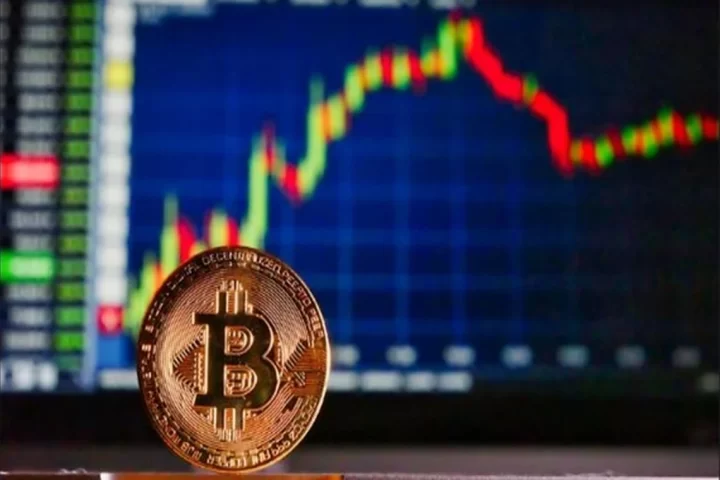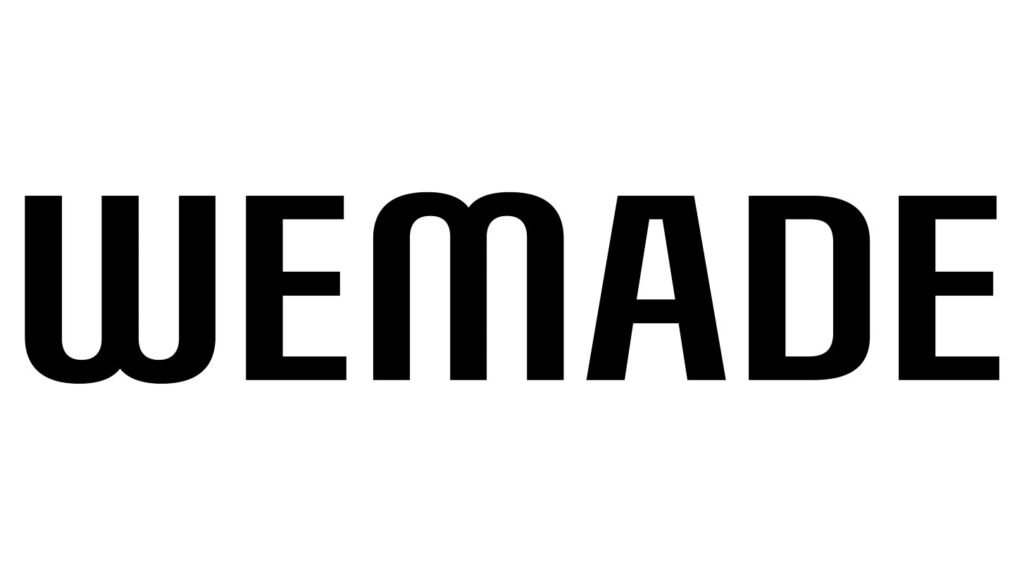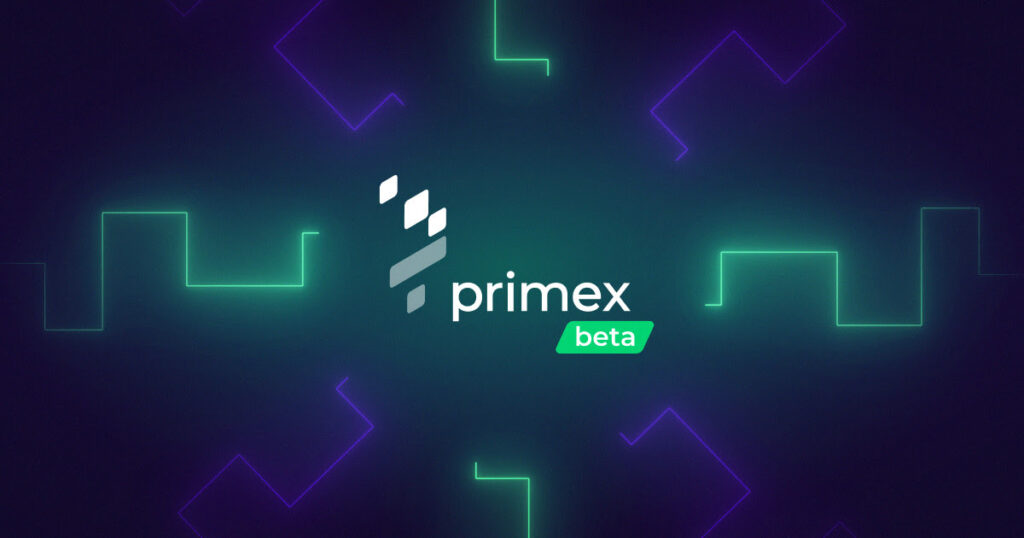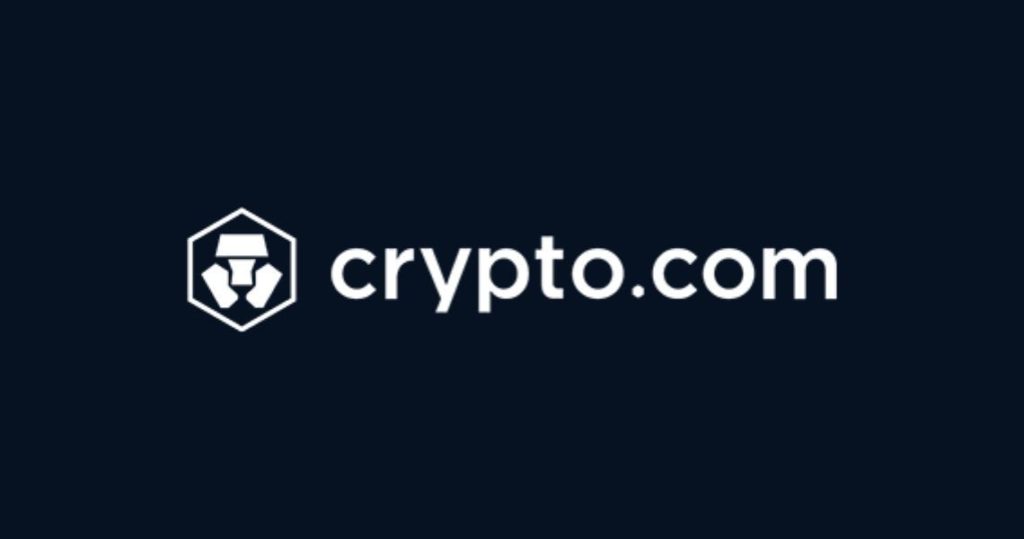Operated by Banyan Collective, Near Hacks successfully debuted in Lisbon, bringing together 18 builders and founders on Near Protocol under one roof. The Near Hacks Founders House by Supermoon Camp boasted a space for collaboration and creativity, while guests shared impressive projects and ideas.
Guests enjoyed the full Nearcon experience, with top panels and interviews alongside Supermoon gatherings. Supermoon Station, Supermoon’s media arm, met with the guests of Near Hacks House and Nearcon participants for a series of interviews uncovering the latest projects in the Web3 space.
As a part of the Near Hacks Founders House experience, Supermoon Station interviewed builders and founders from the Near ecosystem, including Alejandro Betancourt from Metapool, Robert Chen and Alex Donn from Ottersec, Mitchell Gildenberg from Switchboard, Odyssey co-founders Edward Bramanti and Parker Allen, Seung Hyun Lee from Coineasy, Kevin Mazi from Near Africa’s regional hub, Chad Ostrowski from Aha Labs and Luke Devern from Invoker Labs.
A few special guests attended Nearcon as well, including Nearverse founder William Bear and Baron Davis, a former NBA player who works on applications in the Web3 space.
The series of interviews culminated in a chat with Cameron Dennis, founder of the Banyan Collective, who shared the importance of fostering spaces for Web3 founders to organically connect: “The positive potential of decentralized ecosystems is undeniable. However, decentralization can lack coordination to scale long-term. Through the Near Hacks Founders House, we are starting to create the information highways for key players in the Near ecosystem to multiply their growth and win with other change-makers.”
Near Hacks runs hacker houses and hackathons to promote Near-native project development in the United States. Builders on Near can expect curated spaces to collaborate and learn, scaling their projects from MVP to seed and beyond. Near Hacks is operated by Banyan Collective, a grant recipient of the Near Foundation with the goal of providing Ecosystem-as-a-Service to Near-native projects and businesses. Follow Near Hacks on Twitter to learn more about its U.S. tour.
Powered by the Supermoon Camp team, Supermoon Camp organizes high-impact events with elevated networking experiences for talented professionals, founders and builders from different ecosystems with a mission to elevate the Web3 space.
Socials
The U.S. Treasury Department said on Tuesday that cryptocurrency exchange Bittrex Inc had agreed to pay $29 mln in fines for “apparent violations” of sanctions on certain countries and anti-money laundering law.
The Treasury Department’s Office of Foreign Assets Control (OFAC) and Financial Crimes Enforcement Network (FinCEN) had levied fines of about $24 million and $29 million, respectively, on Bittrex.
But according to terms of the settlement, FinCEN would transfer $24 million to OFAC after it receives its $29-million payment from Bittrex, as some of the violations stem from the “same underlying conduct” as the OFAC investigation.
Effectively, Bittrex will have to pay a penalty of about $29 million.
Bittrex failed to prevent people located in the sanctioned jurisdictions of Ukraine’s Crimea region, Cuba, Iran, Sudan and Syria from using its platform between March 2014 and December 2017, according to OFAC.
FinCEN said its investigation found that from February 2014 through December 2018, Bittrex did not maintain an effective anti-money laundering program.
“Bittrex’s AML program failed to appropriately address the risks associated with the products and services it offered, including anonymity-enhanced cryptocurrencies,” it added.
Cryptocurrencies and other digital assets have soared in popularity over recent years and are getting increasingly intertwined with the regulated financial system, saddling policymakers with monitoring risks in a largely unregulated sector.
Bittrex in an emailed statement to Reuters said it was “pleased to have fully resolved” the matter with OFAC and FinCEN on mutually agreeable terms.
A growing number of funds are betting on the long-term appeal of bitcoin and ether, a gritty gambit in the depths of a crypto winter.
Unfazed by a collapse in prices over the past 11 months, investment firms have unleashed a flurry of exchange-traded funds, anticipating that elite cryptocurrencies and their underlying technology will eventually prevail.
Of more than 180 total active crypto exchange traded products (ETPs) and trust products globally, half have launched since the bitcoin bear market started, Morgan Stanley said in a note published this month. The proliferation came even as the total value of assets in the market slumped 70% to $24 billion in that period as crypto prices tanked.
About 95% of those 180 funds are focused on the top two coins, bitcoin and ether, Morgan Stanley said.
“Naturally when the market is slower, prices are lower, people have lost money, the intensity of the appetite does diminish,” said Chen Arad, co-founder of crypto risk monitoring firm Solidus Labs. “But it’s not the case in the long run. As a whole, I don’t think anyone is giving up.”
The attraction of ETPs is that they provide exposure to digital assets on a regulated stock exchange, so retail and institutional investors don’t have to worry about securely storing their crypto and eluding hacks and heists.
In terms of money, cryptocurrency investment products have attracted about $453 million in net inflows this year with much of it going into bitcoin and investment vehicles that include the biggest cryptocurrencies, according to a report from digital asset manager Coinshares.
“There is more asset allocation towards baskets that combine the top five or 10 crypto assets by market cap. It’s a flight to quality compared to alternative assets in the crypto industry,” said Eliezer Ndinga, director of research at 21shares.
Other major cryptocurrencies include solana, cardano and ripple .
Most active crypto ETP products are registered outside the United States, though, with Switzerland, Canada, Australia and Brazil racing ahead with spot crypto offerings.
One reason is that U.S. regulators have turned down several applications for spot bitcoin funds, which mirror the cryptocurrency’s price movements tick-by-tick, citing multiple reasons including a lack of surveillance-sharing agreements with regulated markets relating to the spot funds’ underlying assets.
Investors in futures-based funds must often shoulder the additional cost of the futures rollover as contracts approach settlement day, to maintain their position.
Bitcoin has lost 17% in the past three months, while ProShares Bitcoin Strategy’s ETF , which tracks bitcoin futures, has shed about 21%. The world’s largest bitcoin fund, Grayscale Bitcoin Trust (GBTC.PK), is down 34% in the same time.
ProShares Bitcoin Strategy ETF, has seen assets under management (AUM) shrink to just over $600 million as of the end of September, according to Refinitiv Lipper data. At its debut a year ago it pulled in over $1 billion in a matter of days.
At Grayscale’s Bitcoin Trust, the AUM have tumbled to $12.2 billion from over $30 billion at the end of 2021, data from the firm showed.
Will Peck, head of digital assets at WisdomTree, whose spot bitcoin ETF was blocked by U.S. watchdogs last week, said he wasn’t surprised by the decision, but expressed hope that an agreement could be reached.
“I think we’ll ultimately get there. But we’ll be in a holding pattern for the foreseeable future.”
Wemade, a South Korean gaming company, announced its plan to issue a stablecoin on its mainnet a few months ago. Currently, it’s servicing 16 blockchain games on its platform, WEMIX Play.
The company revealed the detailed mechanism of the stablecoin, WEMIX$. With the launch date of its own mainnet WEMIX3.0 set on Oct. 20, the crypto market is likely to see a brand new stablecoin very soon.
“Stablecoin is the hottest topic in the crypto scene right now,” said Henry Chang, CEO of Wemade. “It is ‘the one who must not be named’ these days,” referring to the Terra crash from which the crypto market still hasn’t recovered.
However, there are three requirements that a successful stablecoin should meet, and WEMIX$ has them all, he went on to argue.
First, a stablecoin must be stable. That may sound obvious, but we’ve seen stablecoins that were unstable. However, WEMIX$ is stable because it will be issued 100% reserved by USD Coin (USDC$1.00), he explained.
He argued that another requirement for a stablecoin is “stable and native reflexivity,” which means when the demand for WEMIX$ increases, the value of WEMIX, the native coin of the Wemix3.0, should rise as well. That, in return, will expand the WEMIX3.0 ecosystem, and it will increase the volume of trade using WEMIX$.
To secure this positive cycle, a portion of every fee generated by WEMIX$ trades and WEMIX$-based trades will be allocated to the WEMIX holder community. Specifically, the WEMIX team plans to create a staking program and continue to distribute a certain portion of the WEMIX$ fees created in the WEMIX3.0 ecosystem to the staking program.
The third requirement he mentioned is scalability. For the ecosystem to grow, the total volume of its stablecoin must grow accordingly. In other words, the size of the ecosystem’s economy could be limited by its stablecoin’s trading volume.
To tackle this and peg problem, the WEMIX team devised its DIOS protocol for issuing and burning stablecoins. When high demand for WEMIX$ raises its price over 1 USDC, DIOS will issue additional WEMIX$ and swap with USDC to pull the price back to $1. Since the WEMIX$ price was higher than $1, there will be a surplus of USDC, which will be put in reserve, and additional WEMIX$ will be issued to keep the WEMIX/USDC ratio at 1:1. This newly issued WEMIX$ will go to the aforementioned staking program. This process also expands the total volume of WEMIX$ and USDC reserves.
If the price goes below $1, the DIOS protocol will be activated and take USDC from the reserve and buy WEMIX$ on decentralized exchanges. The protocol will burn the WEMIX to pull up its value. Then, the surplus of USDC will be put back into the reserve again, and additional WEMIX$ will be issued to match the 1:1 ratio.
“In order for the digital blockchain economy to operate and become successful, stablecoins are essential, and three requirements are needed to create a successful stablecoin, which are stability, stable and native reflexivity and scalability.” He concluded adding, “WEMIX$ will become a new history of stablecoins, and that history will be the cornerstone of the digital blockchain economy.”
London, UK, 18th October, 2022, Chainwire
Today, Kora, the app which pays users to reduce their carbon footprint, announced an investment from the Tezos Foundation as well as their use of the energy-efficient Tezos blockchain to power their app.
The Kora app rewards climate-positive actions and helps individuals, companies, and organizations measure and reduce their carbon footprint. Users earn Koras for actions that reduce their carbon footprint such as biking, switching to renewable energies, or taking public transportation.
Tezos, an energy-efficient open source blockchain network powered by a globally decentralised network of users and validators, will provide data and payment security for the Kora app.
In commenting on the reasons behind its selection of Tezos, Kora CEO & Co-Founder Gilad Regev comments, “Kora is becoming the most accurate real-time platform for measuring and validating behavior change. Ensuring that our users’ data and payment information is safe and secure has been a critical milestone in developing our platform.
Furthermore, the low-carbon Tezos blockchain enables secure validation of climate action. As a pioneer of the Proof-of-Stake blockchain revolution, and with one of the lowest carbon footprints in the industry with an annual footprint equal to that of 17 persons, Tezos was the obvious blockchain of choice for Kora.”
Gilad continues, “The support from the Tezos Foundation of Kora is a pivotal moment in the growth of Kora, one which will help propel it as both an app- and a movement- to new heights and we look forward to working with Tezos in this exciting chapter of our development. ”
Companies and builders around the globe leverage Tezos for projects exploring the potential for blockchain to be a tool for sustainable innovation. Recently, Cambridge University announced that the Cambridge Centre for Carbon Credits (4C) is building a trusted decentralised marketplace on Tezos that links corporate funders to conservationists via automated and transparent global oracles. Using this marketplace, purchasers of carbon credits will be able to confidently and directly fund trusted nature-based projects.
As part of its partnership, Kora joins the Cambridge Centre for Carbon Credits (4C) as another leading carbon reduction initiative building on the Tezos blockchain.
Learn more about Kora at Kora.app
Explore Tezos at Tezos.com
About Kora:
Kora exists to stop climate change. With a goal to reduce 2.5-3.5 gigatons of carbon emissions annually, Kora works by rewarding the reduction of C02. Koras are earned for every 100 grams of CO2 users reduce. The in-app Kora wallet allows users to keep track of their Kora earnings and send and accept payments from other Kora users or partners and participating businesses, and trade redeem the koras in the low carbon focused Kora marketplace.
About Tezos:
Tezos is smart money, redefining what it means to hold and exchange value in a digitally connected world. A self-upgradable and energy-efficient Proof of Stake blockchain with a proven track record, Tezos seamlessly adopts tomorrow’s innovations without network disruptions today. For more information, please visit www.tezos.com.
About Tezos Foundation:
The Tezos Foundation is a Swiss non-profit foundation that supports the development and long-term success of the Tezos protocol, an energy efficient blockchain with the ability to evolve by upgrading itself. For more information, please visit www.tezos.foundation.
Contact
Tal Dotan
pr@marketacross.com
Banks that accept deposits from cryptocurrency companies should be aware of increased liquidity risks, particularly if firms are highly interconnected with other digital asset businesses, said Michael Barr, the Federal Reserve’s vice chair of supervision, in a speech on Wednesday.
Barr said the Fed is working with the Office of the Comptroller of the Currency and the Federal Deposit Insurance Corp to highlight the risks to banks of concentrating their deposits in the crypto industry, warning that banks could experience deposit fluctuations linked to price swings in the broader crypto market.
“The recent volatility in crypto markets has demonstrated the extent of centralization and interconnectedness among crypto-asset companies, which contributes to amplified stress,” he said.
“While banks were not directly exposed to losses from these events, these episodes have highlighted potential risks for banking organizations.”
Speaking at DC Fintech Week, Barr said the banking regulators’ engagement with financial institutions on the risks of accepting deposits from crypto firms is “not intended to discourage banks from providing access” to banking services for crypto companies, but instead on making sure that any risks are appropriately mitigated.
Barr’s comments mark his first full remarks on cryptocurrency and fintech since taking the top regulatory post at the Fed in July. In the speech, Barr said regulators need to balance supporting innovation while providing guardrails that protect consumers and guard against systemic risks.
Barr also warned that crypto companies making misrepresentations about deposit insurance can confuse customers, and may lead to increased withdrawals at crypto-aligned banks that provide such services during periods of heightened stress.
Those comments follow action the FDIC took in August in which it ordered crypto exchange FTX, along with several other crypto firms, to halt what it called “false and misleading” claims an FTX official had made about whether funds at the company are insured by the government.
Paris, France, 14th October, 2022, Chainwire
Paris Blockchain Week, the leading international conference dedicated to professionals in the blockchain and Web3 space, will be hosted at the Carrousel du LOUVRE in the heart of Paris’ historic palace and largest museum in the world from 20th to 24th March 2023. This 4th edition of the Paris Blockchain Week is Europe’s biggest blockchain event, covering: decentralized finance, NFTs, Web3, and metaverse, with 10,000+ attendees from around the globe, passionate to share, learn, and do business in one of the world’s most iconic places in the French Capital: the LOUVRE.
Key blockchain industry personalities have already committed to speaking at this celebration of all things blockchain. A first glance at our Speaker line-up includes Tim Draper (Founder and Managing Partner of Draper Associates, DFJ and the Draper Venture Network), Denelle Dixon (Chief Executive Officer & Executive Director, Stellar Development Foundation), Nicolas Cary (Co-Founder & Vice Chairman of Blockchain.com), Eva Kaili (Vice President of the European Parliament), Yat Siu (Co-Founder and Executive Chairman, Animoca Brands Founder and CEO, Outblaze), Sébastien Borget (Co-Founder & COO, The Sandbox), Alexandre Dreyfus (CEO, Chiliz & Socios.com), Ira Auerbach (Senior Vice President, Head of Digital Assets, Nasdaq).
During this prestigious week, Paris Blockchain Week will also play host to several fringe events held by the most prominent blockchain brands. The Talent Fair provides a full day of employment opportunities spanning the largest players and latest innovators. By popular request, the Paris Blockchain Week Hackathon is back with brand new challenges and prizes to be won.
Emmanuel Fenet, CEO of Paris Blockchain Week, is anticipating this global crypto and blockchain flagship event with great enthusiasm. “We look forward to bringing an exciting and engaging event to the thousands of attendees who will be joining us again this year. Speakers from the best blockchain, Web3, NFT and metaverse platforms, digital asset companies, and leading VC funds will join the stage and share their insights. With over 400 speakers, we can hardly wait to reveal our full programme and line-up soon, so block your calendar for 20-24 March. See you at the Louvre!”
Sébastien Borget, co-Founder and COO of The Sandbox, commented about the 2023 edition “I can’t think of a more emblematic place than the LOUVRE, an historic landmark of Paris where art collections, paintings, sculptures and others forms of art are assembled, to be home of Paris Blockchain Week 2023 to exhibit how Web3 contributes to innovation in technology, Art, NFTs, Gaming and Metaverse.”
The Paris Blockchain Week March 2023 edition is set to welcome 10,000+ attendees, 400+ speakers, 300+ sponsors, 60% C-level+ executives, 400+ media and journalists. Website: www.parisblockchainweek.com
Contact
Dan
MarketAcross PR
pr@marketacross.com
Kyiv, Ukraine, 13th October, 2022, Chainwire
Primex Finance, the first-ever cross-chain prime brokerage protocol, launches the Primex Beta on the Ethereum Goerli testnet. The Beta version allows users to experiment with the protocol’s cross-DEX spot margin trading. With the Beta launch, Primex also introduces the new Referral Program for early users, offering benefits to early registrants and referral-based rewards.
DeFi holds the potential to financially empower investors and traders in ways that were previously unimaginable in the traditional financial world. Despite that, most of the existing DEXs with margin trading features still use centralized trade execution mechanisms and feature a limited number of assets available for margin trading as derivatives.
Primex decentralizes the trade-execution mechanism to enable a wider variety of actions on DEXs. Instead of centralized order books, all automated trade executions on Primex are carried out by a network of Keepers. Consequently, decentralization can be maintained throughout the entire trading process, from creating an order to closing the position.
The Beta version of Primex’s protocol introduces key features, such as:
- Spot trading without leverage: Primex Traders will now be able to use different types of orders—stop loss, take profit, and limit orders—for non-leveraged spot trades in a decentralized manner, facilitating the trade of cryptocurrency pairs without leverage.
- Primex Splitter: A new mechanism that functions as an aggregation solution that splits up swaps across multiple DEXs and helps users make their trades more efficiently by reducing slippage and finding the best swap rates, without any additional fees.
- Open Position and Order Modification: Introducing the ability for users to modify the deposit, Take Profit/Stop Loss (TP/SL), limit price, and leverage of open orders.
- Partial Position Close: Traders now have the ability to partially close an open position. When a position is partially closed, the returned funds are distributed between the Credit Bucket and the Trader, depending on debt size.
- Spot Orders and Positions Data: Expanded data display to include information about each Trader’s spot orders and positions.
- WalletConnect Integration: In addition to MetaMask, users can now use WalletConnect, widening the variety of crypto wallets connected to Primex.
- New DEX Integrations: Primex Beta supports two new DEXs (Curve and Balancer), as well as Uniswap v3 pools with different fees.
- Bucket Reserves: A new mechanism that automatically moves part of the traders’ fees to the Reserve Pool of each Credit Bucket to insure them against potential losses.
- Multi-Language Support: The Primex platform is now available in seven more languages to provide access to a more localized and user-friendly experience.
In addition to the new mechanisms introduced with Primex Beta, the Referral Program offers rewards in exchange for inviting new users to the platform. Connections and referral contributions are automatically tracked utilizing smart contracts to store the data transparently on-chain. Furthermore, the Early User Program grants participation in private challenges for a chance to earn exclusive prizes and access to the Primex private Discord channels. Ultimately, early users can also participate in the Ambassador Program to earn exclusive ambassador-only rewards.
“We are right on track to fulfilling our mission of defragmenting the DeFi markets via the new prime brokerage protocol that offers users open access to a truly decentralized spot margin trading experience across numerous DEXs and blockchains,” says Vlad Kostanda, Co-Founder and CEO of Primex. ”This new upgrade will enhance how the protocol works while bringing our team one step closer to Primex’s mainnet launch.”
About Primex Finance
Ukrainian-led Primex Finance is the cross-chain prime brokerage liquidity protocol for cross-DEX margin trading with trader scoring mechanisms. Lenders will have the flexibility to manage their risks and return by providing liquidity to a variety of risk buckets, subsets of liquidity pools that regulate trader risk strategies. For more information visit https://primex.finance/, or visit the Primex blog.
Contact
CMO
Anton Demenko
PrimexLabs OÜ
info@primex.finance
Blockchain.com, a cryptocurrency exchange backed by investors including Lightspeed Venture Partners, said on Wednesday it had received approval from Singapore’s central bank to offer payment services in the city-state.
The announcement came a day after crypto giant, Coinbase, said it had also received the same approval. This brings the number of crypto companies allowed to operate in Singapore to 18, out of the roughly 180 firms who have applied for a crypto payments licence as of January this year.
Blockchain.com, which was valued at $14 billion in March, said in a statement that it views Singapore as an attractive location to grow its institutional customers and team. Half of its business comes from institutions and its retail business has 84 million wallet holders from 200 countries, it said.
Singapore’s welcoming approach has helped the financial hub attract digital asset services-related firms from China, India and elsewhere in the last few years, making it a major centre in Asia.
However, crypto players have seen the value of their holdings drop after this year’s collapse of crypto fund Three Arrows Capital and cryptocurrencies Luna and TerraUSD, as well as a steady stream of cyber robberies.
Cryptocurrency platform Crypto.com will set up its European regional headquarters in Paris, the Singapore-based company said on Wednesday.
The firm will invest 150 million euros ($145.7 million) in France to support the establishment of its market operations, it said in a statement, adding it will hire local talent in the fields of compliance, business development and product.
The cryptocurrency exchange platform, which has more than 50 million users worldwide, received regulatory approval by the French market authority last month, allowing it to offer products and services to customers in France.
Crypto.com also got regulatory approval in the United Kingdom and Italy earlier this year.
In May, cryptocurrency exchange Binance said it had registered with France’s market regulator, with Binance France’s general manager David Prinçay adding it was now seeking a formal licence to open a regional headquarters in France.













